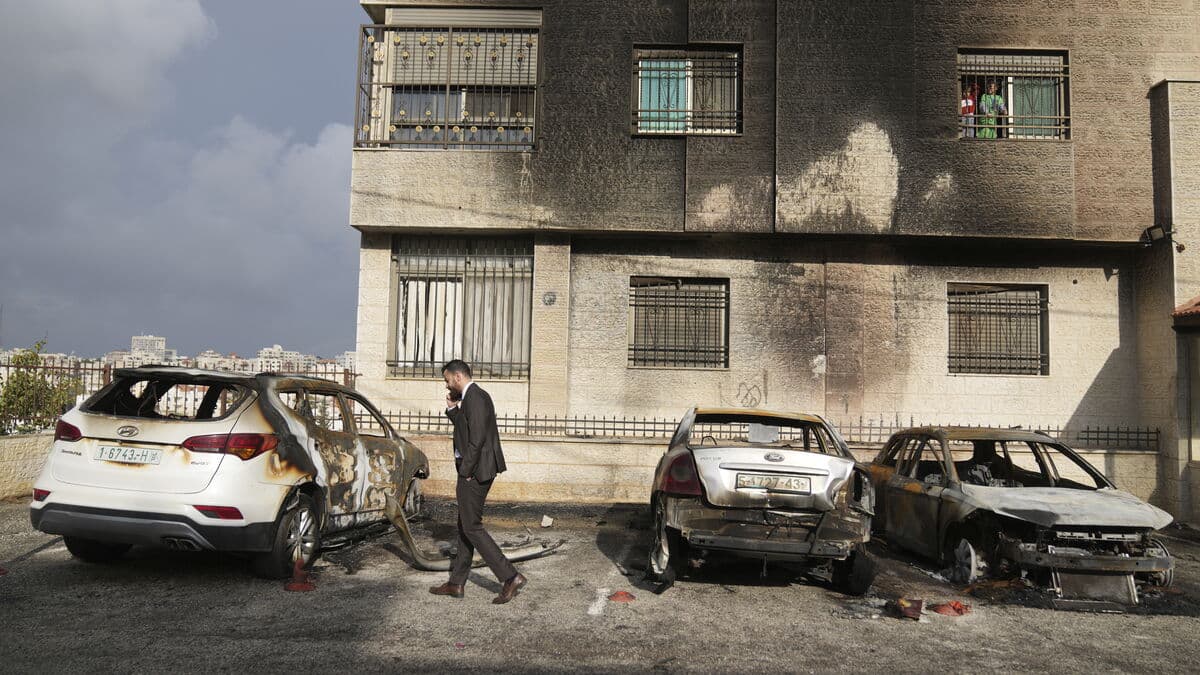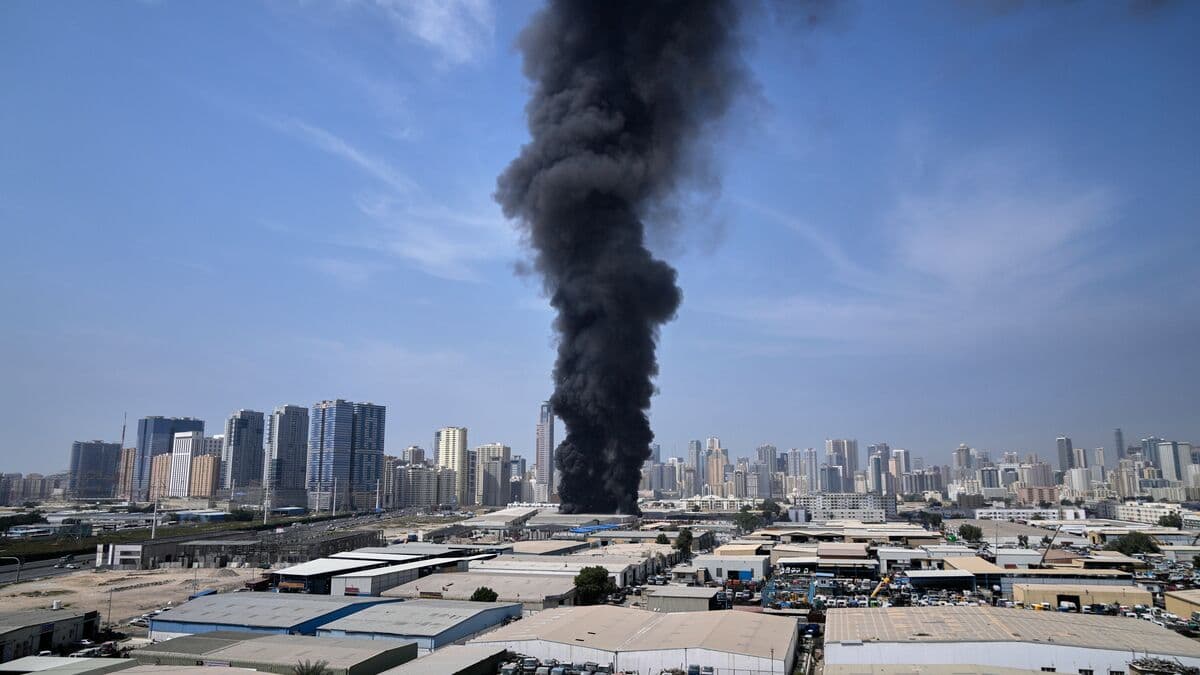"It's best if I show you," says Ibrahim, turning the phone's camera from the floor where the twins' toys are crowded, up and out the window.
On a hill, with a clear view of the entire village, towers Psagot – one of the older Israeli settlements in the West Bank. Psagot was established in 1981 as part of Israel’s plan to consolidate its position on occupied land. What Israel calls a village, but much of the world sees as an illegal settlement, became a symbol of the conflict during the second intifada at the turn of the millennium. After deadly attacks between Israelis and Palestinians, a wall was built around the settlers.
For Ibrahim, the prospect of constant violence is a reminder. The Israeli settlements and occupation are in violation of international law, according to the International Court of Justice in The Hague. But that doesn't matter.
Record number of new homes
Since the beginning of 2025, the Israeli council that approves new settlements on occupied land has moved forward with plans for over 25,000 homes – a record, according to the Israeli organization Peace Now. The most controversial project is the so-called E1 settlement, a giant construction project that effectively cuts the Palestinian West Bank in two. The Israeli government has explicitly said that the project aims to stop the possibility of a Palestinian state.
Ibrahim says he tries not to normalize the growing settlements, but that it is difficult when he has them before his eyes and knows that it could lead to more oppression and violence.
"It affects our health. That's why many of us are thinking about moving. You want to be able to drink your coffee in peace and quiet, without being prepared for bullets or fascist settlers," says Ibrahim.
“Impunity” for settler violence
Ibrahim's real name is something else, but he has asked to remain anonymous for fear of Israeli reprisals. His concerns are there for a reason. Life for Palestinians in the West Bank has changed dramatically since the Netanyahu government took office in 2022, especially after Hamas' terrorist attacks against Israel in October 2023.
"We have noticed an increase in settler violence and a general impunity for it," says Yonathan Mizrachi, at Peace Now, where he examines settlement policy.
The Israeli government is doing far too little, if anything, to prevent the violence, according to Mizrachi. Since January 1, 2024, an average of just over four settler attacks that have caused damage to people or property have occurred every day, according to the UN agency Unocha .
Many settlers consider the West Bank to be Israeli territory, or at least land to which they are entitled, in violation of international law. In recent years, a record number of new settler outposts have been built, many of them on or in close proximity to Palestinian private land.
According to Ibrahim, the settlers are armed when they move around in public.
"Palestinians are afraid to go to their lands, they risk all kinds of clashes with the settlers. It's definitely a threat," says Mizrachi.
Uprooted olive tree
Palestinian opportunities are also directly limited by the Israeli state, which has strengthened its grip on the West Bank. Up to 700 Palestinians, including more than 130 children, have been killed since January 2024, mainly by Israeli soldiers but also by settlers. On the Israeli side, the number is 38, including four children and 19 soldiers.
Few Palestinians have been allowed to work in Israel since October 2023. Cultivated lands are being destroyed, sometimes by settlers who set them on fire, sometimes by Israeli soldiers who have uprooted thousands of ancient olive trees this year alone.
Roadblocks have been set up across the Palestinian territory, blocking villages and towns, hindering freedom of movement and making it even more difficult for Palestinians to earn a living.
They can just close the streets at any time, says Ibrahim, and explains that it is common to have to spend the night in your car when you have to visit hospitals, or work and go to school.
A journey of just a few kilometers can take several hours, while Israelis can travel relatively freely between the different territories in the West Bank.
There is no logic behind it, just apartheid.
“Makes life very difficult”
The accusation of apartheid, the term taken from South Africa's racial segregation policy between 1948 and 1994, is shared by a number of human rights groups, as well as former Mossad chief Tamir Pardo and now retired Israeli general Amiram Levin. The Israeli government rejects the description.
Tens of thousands of Palestinians have been displaced , particularly from places like Jenin and Tulkarem, where the Israeli military, citing security reasons, has regularly carried out extensive raids in recent years.
"New roads, new settlements, a whole system of roadblocks that open and close without warning make life very difficult. It was risky before, but now it's war. We live in a war zone," says Ibrahim.
The Palestinian territories consist of Gaza, the West Bank and East Jerusalem.
The West Bank, located about fifty kilometers from Gaza, has been occupied by Israel in violation of international law since 1967.
This year, Israel's parliament passed a non-binding, but symbolically important, motion to go even further and annex the area.
The West Bank is governed by the Palestinian Authority, but Israel controls large parts of the land, borders and security.
In 2023, about three million Palestinians lived there, and half a million Israeli settlers.
Since the Gaza War broke out in 2023, violence has increased in the West Bank.






